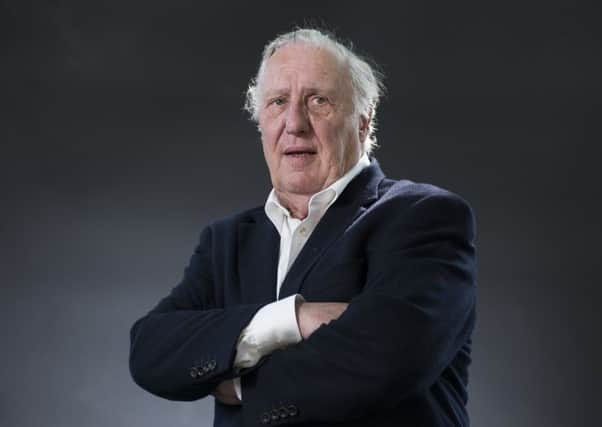Book festival authors share stories


Here’s an idea. Someday soon somebody should think of putting up a statue to Edna O’Brien. Ideally it should be in Tuamgraney, the village in Co Clare where she was born in (gulp) 1930 into a house with no books and a village with no library, only – as she told a packed audience of acolytes yesterday afternoon – a single divorcee who had a copy of Daphne du Maurier’s Rebecca from which she circulated pages around the more enlightened women in the village “although never in the right order”.
The statue would, therefore, be right in the middle of what she described in the opening to her short story A Scandalous Woman as “a land of shame, a land of murder, a land of strange, throttled, sacrificial women” and it should be erected because Ireland no longer is, and O’Brien is one of the writers who has made it so. To underline the point, it could even be put up right where they burned copies of her first novel The Country Girls when it came out in 1960 and she became a scandalous woman in her homeland.
Advertisement
Hide AdAdvertisement
Hide AdHer last four books, while retaining a personal narrative and the west of Ireland setting of her earlier work, have reached out further into the wider world. Her latest, The Little Red Chairs – her masterpiece, according to Philip Roth – is a case in point. It centres on the arrival in the village of a soft-voiced, mesmerising poetic healer not a million miles from war criminal Radovan Karadzic.
In an entirely engrossing session, she explained how talking to Bosnian refugees and attending a war crimes trial at The Hague had affected its writing. When she was there, Karadzic’s lawyer told her his client was actually a fan of her work: she’d like him if only she met him, they’d have a lot in common. “From which I could tell,” she said, “how little he really knew me”. One final, tantalising morsel of news: there are, she said, “few great directors in the world, but I believe I will have one for the filming of The Little Red Chairs.”
Earlier, Frederick Forsyth had been asked when he’d most been frightened. Easy, he said. It would have been that time he was driving along a dusty track in Africa , when a MiG spotted him and started machine-gunning his car. He’s got no shortage of stories like that. He could have picked the time he was pretending to be an arms dealer in Hamburg and got a phone call warning him to get out of the city, not just in minutes but straight away. Or when he was driving back from East Germany with a secret package hidden under the car battery when he was stopped by the Volkspolizei. Or when he was in a plane (Africa again) and a bullet burst through the fuselage beneath him and shot up between his legs. Yes, I imagine that would have given me a turn too.
I’ve always thought Ian Rankin one of the best chairs of the festival, and he didn’t disappoint. Maybe it was because Forsyth was one of the few writers he and his father had in common, maybe he’s in awe of someone who writes his books in just one draft, maybe it’s because it must make a change to meet a fellow writer who actually has lived an interesting and anecdote-strewn life.
Whatever it was, he sensibly didn’t bother asking a single question about Brexit (Forsyth was the patron of Better Off Out), knowing that could alter the whole mood of the event. And Charlotte Square audiences are so ineffably civilised that no-one asked him about it from the floor either. This really is the world’s politest city.